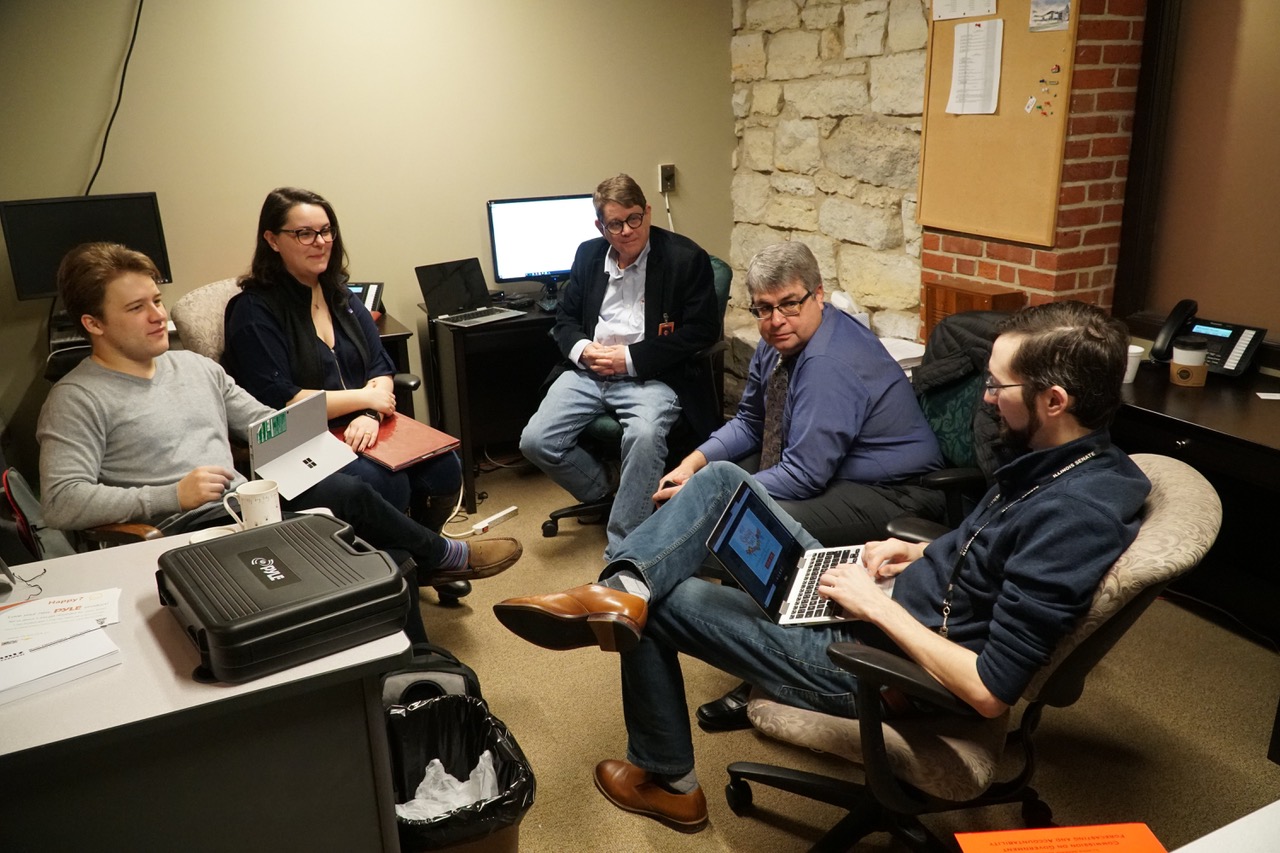New statehouse bureau aims to fill gap in coverage for Illinois newspapers
Like many statehouse press corps, the one in Illinois is a fraction of what it used to be. Since the……
Founded as St. Louis Journalism Review in 1970

Like many statehouse press corps, the one in Illinois is a fraction of what it used to be. Since the……
BEN LYONS / Hollywood still casts the media in powerful roles, even while satirizing their tabloidization. Journalists in film are capable of bringing down regimes and crushing Broadway shows single-handedly. But changes to the news environment have not gone unnoticed. Social media competes side-by-side with the New York Times. It’s no coincidence sensationalism has seeped back on-screen, where celebrity gossip and gory crime often displace serious issues and ethics are seen as quaint. While still incorporating our classic images of journalists, both heroes and fools, scriptwriters have updated Hollywood’s mirror to more accurately reflect today’s fragmented and sometimes troubling media landscape.
The Pulitzer and Polk committees had little choice, as most commentators say. They felt that they had to give their 2013 prizes for public service to the publications and reporters who broke one of the biggest stories of the year, the broad surveillance operations of the National Security Agency. But their decisions deserve second thoughts. Consequences figure in the committees’ thinking, and the disclosures have brought beneficial consequences by most estimates. President Obama has reacted by ordering a restructuring of the surveillance systems to limit reported abuses. And the press and public have learned much about what the U.S. government has been doing in secret. But some other consequences have been clearly harmful. Among them is the outrage in Germany, a prime ally and trading partner of the United States, over the N.S.A.’s gathering of electronic data from its ordinary citizens and spying on Chancellor Angela Merkel. She said angrily that “snooping among friends, that just doesn’t work.”
The social media firestorm that surrounded the decision by Southern Illinois University’s board of trustees to put off voting on a media fee for the 98-year-old Daily Egyptian newspaper caught university administrators by surprise. DE alumni from as far away as Iraq leaped to the paper’s defense, flooding social media, including the hashtag #savethede on Twitter.
By TOM EVESLAGE / Imagine, a resident of your community complaining to the city council that her free-speech rights were violated when the local newspaper edited her letter to the editor. If that’s not preposterous enough, how likely is it that the council would pass an ordinance forbidding the newspaper from editing any further letters without first getting permission from the city council? These are just fairy tales, at least when the professional media are involved. But student journalists at Neshaminy High School in suburban Philadelphia are fighting just such an unprecedented battle. And unless “government” officials in that public school come to their senses soon, a judge will be asked to intercede.